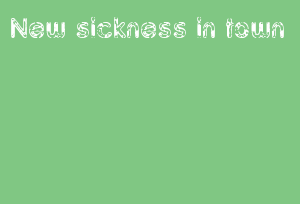OthersCommunications And EntertainmentArts And EducationRelationship And MarriageHealth And LifestyleFamily And HolidaysQuestions And AnswersNews And PoliticsSports And FitnessBusiness And MoneyFood And KitchenHobbies And HandiworksStories And PoemsReligion And PrinciplesScience And TechnologyEntertainmentVehicles And MobilityAgricultureIT And Computer ScienceUSMLE And MedicalsGive AidQuestions AnsweredEducationMoneyNewsGiveawayReligionFamilyLifetipsRelationshipsMotivationalsPersonal Care And Beauty
NM01
Others : Follow Me On Facebook:- Https://www.facebook.com/profile.php?id=100056858291530
Wants to meet Just Friends
Articles
582
Followers
22
Connect with me
profile/2375IMG_20201123_182452_877.JPG
NM01

See What Fans Are Asking From This Gorgeous Nurse - Photos
~0.6 mins read
 Nursing is a profession that also requires discipline and dedication to ones work; there are several work ethics in different professions and Nursing happens to have its own ethics. The lady in this article is not a model, but a nurse; the Liberian-American nurse shows off her curves on Instagram and this has earned her over 600,000 followers on Instagram. She posts pictures sometimes of herself on duty and this makes her followers to gush over her and ask for a nice treat due to the fact that she is a nurse. |
profile/2375IMG_20201123_182452_877.JPG
NM01

New Sickness In Town
~1.1 mins read
What Is This New Sickness In Town That Causes Severe Itching
My friend who is a pharmacist says lot of people are complaining about this new infection in town that causes severe and intense itching
Even the itching becomes worse at night. It forms blisters( small small bump on the skin) all over the body. The whole penis. and scrotum [itches]
Even after peeling because of scratches still it will continue to itch.
Some say it scabies
Some say it is sexual infection that is inside the body of woman and it doesn't show any symptoms but when a man have sex with a woman who have it then the man will experience the symptoms.
Re:
This is a serious matter. I also have a friend who always complains of itches in her private part. She came visiting us the other day and she was scratching her private part so much that she's opening up her legs wide apart. It happens only when she feels severe heat around that place. She said the more she scratehes it, the more it sweetens her
Shes been to hospitals, run series of tests. But nothing could be said to be happening to her. The doctor only said she's reacting to something. Shes still on medication as I speak. She's not the wayward type and she doesn't mess around from what I have studied so far about her. Her husband was forced to run series of tests too and nothing threatening was found.
Could it be spiritual ??
Advertisement

Link socials
Matches
Loading...